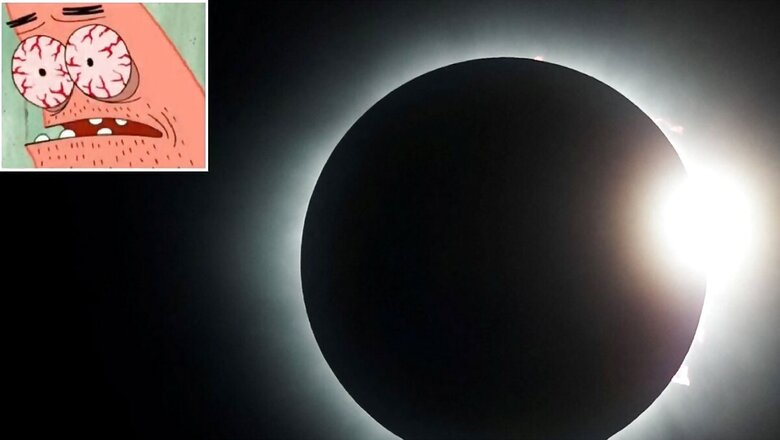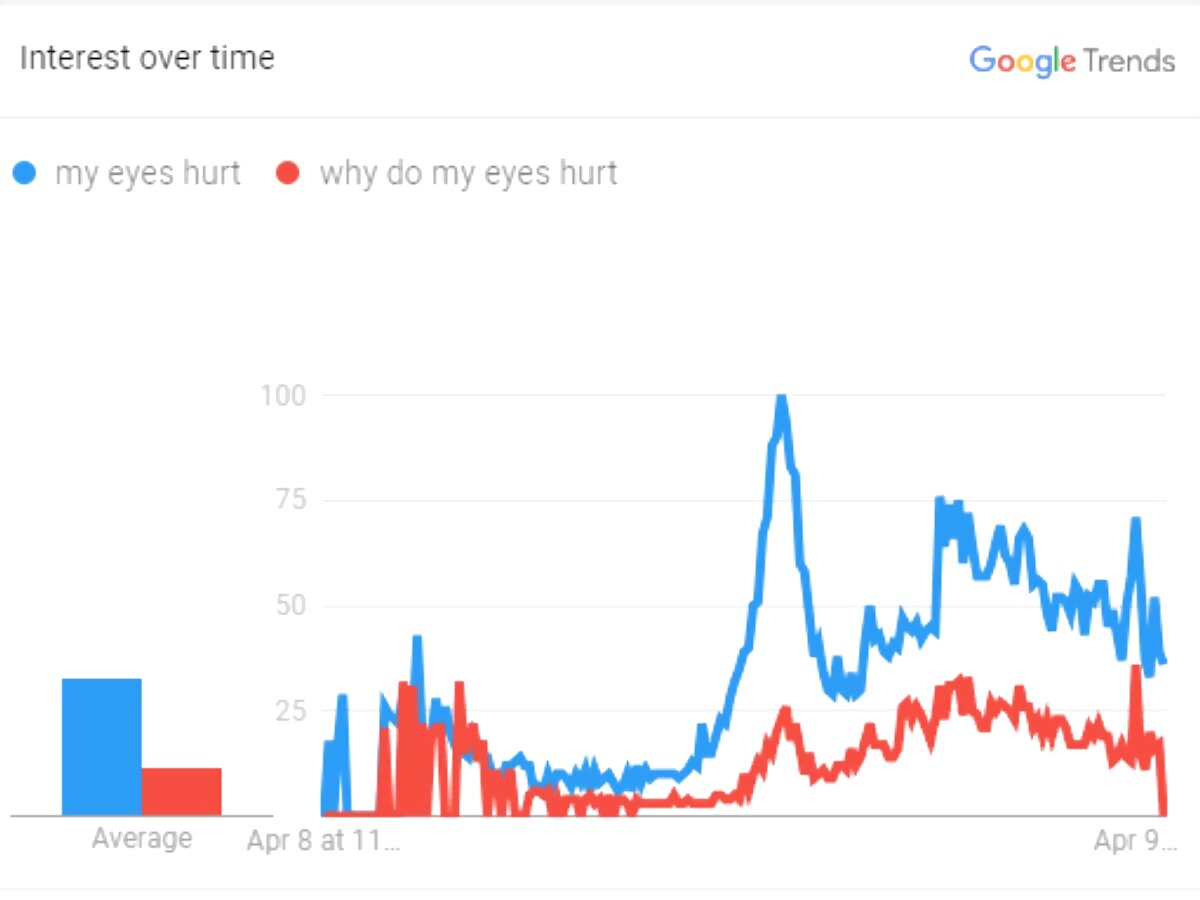
views
We’ve all heard the saying ‘prevention is better than cure,’ but how many of us actually put it into practice? In a world where we often adopt a ‘live and let live’ attitude, some important things tend to slip through the cracks. This was quite evident when many Americans, after witnessing the total solar eclipse of 2024, turned to Google with the question ‘Why do my eyes hurt?’
The search term peaked around 3:00 – 4:00 pm ET in the United States (1:00 – 2:00 am IST), just as the eclipse passed over large parts of the country. Although searches for the topic declined after the eclipse was over for most of the US, they remain higher now than they have been recent, indicating that many may have ignored safety measures and only realised the consequences later when their eyes began to hurt.

Also Read: Solar Eclipse 2024: Stunning Videos, Photos of the Rare Celestial Event Captured By Internet
While it might be tempting to look directly at a total solar eclipse, doing so without proper eye protection can be harmful. Mind you, precautions were clearly outlined in headlines leading up to the solar eclipse on April 8, stating that you shouldn’t look at the eclipse through a camera lens, phone, binoculars, or telescope, even while wearing eclipse glasses, let alone with the naked eye, as the solar rays can burn through the lens and cause serious eye injury.
Yet, it seems many ignored these warnings and turned to Google for solutions.
“Don’t look at the sun.” Proceeds to look at the sun anyways.— Dark Web Informer (@DarkWebInformer) April 8, 2024
In the midst of it all, people on ‘X’ couldn’t resist joking about those who didn’t take proper care before viewing the solar eclipse, and the memes flooded in.
My eyes don’t hurt because I’m not an idiot pic.twitter.com/rHDIwwWVsd— 2022: One or Several Catgirls? (@interpretantion) April 9, 2024
Why do my eyes hurt? Asking for a friend…… pic.twitter.com/FqayuUocxT— Daniel Keller (@dak_flux) April 8, 2024
my eyes hurt pic.twitter.com/IS0B3VxORO— lyss (@thinwhm) April 9, 2024
Meanwhile, ‘Eclipse mania’ swept across North America on Monday, captivating tens of millions of people with a breathtaking celestial display. This rare event not only provided a unique blend of commercial and scientific opportunities but also served as a great excuse for a party. The Moon’s shadow cast darkness over the Pacific coast of Mexico at 11:07 am local time (10:30 pm IST) before racing across the United States at supersonic speed, only to retreat over Canada’s Atlantic coast less than an hour and a half later.


















Comments
0 comment